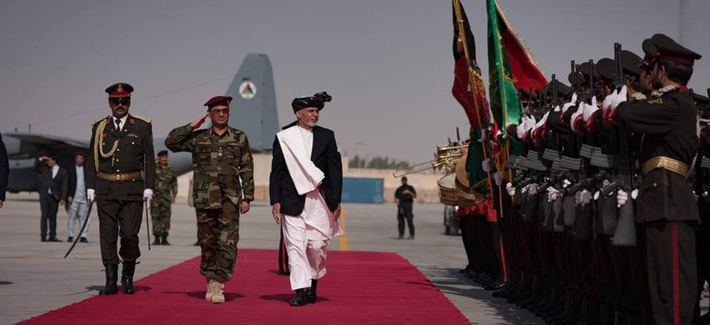Peace talks between Kabul and Afghan Taliban are expected to restart as a result of renewed diplomatic efforts. A senior Taliban representative in Qatar political office said in an interview to leading Pakistani newspaper, Express Tribune that “they are involved in internal discussions” for entering possible negotiations with Kabul.
This change in heart is being linked to the presence, in Islamabad, of the newly appointed acting US Representative for Afghanistan and Pakistan, Laurel Miller. Miller has just replaced Ambassador Richard Olson, who suddenly resigned. Miller has also met with the Afghan Ambassador to Pakistan, Omar Zakhilwal to “discuss various issues”, as was tweeted by Ambassador:
US Acting SRAP Ms Miller, Depty Gen Lyons & Amb Hale called on Dr Zakhilwal this afternoon;discussed various issues. pic.twitter.com/88EUSibT0T
— Dr Omar Zakhilwal (@DrOmarZakhilwal) December 5, 2016
Dr. Zakhilwal’s tweet confirms that the meeting was also attended by US ambassador in Islamabad, David Hale, and the Military Deputy to Special Representative for Afghanistan and Pakistan, Major General Judd Lyons. Miller arrived in Islamabad after meeting Ashraf Ghani in Kabul a couple of days ago.
In October, Taliban political representatives visited Islamabad for the peace talks, after they had also met with and held two rounds of “secret talks” with Afghan spy chief and senior US diplomat in Doha. Pakistan has also encouraged Taliban to negotiate with Kabul through Hizb e Islami, which itself signed a peace deal with Afghan government in September. Sartaj Aziz, advisor to PM on foreign affairs, vowed Pakistan’s support for Hizb-Afghan peace agreement during Heart of Asia conference in Amritsar. Hizb-e-Islami’s reconciliation with Kabul regime, despite the unusually troubling past of Gulbuddin Hekmatyar, was seen as setting the stage for facilitating talks with Taliban. After all, argument goes: if someone like Hekmatyar – sometimes referred to as the ‘Butcher of Kabul’ – is now acceptable then what’s so wrong with the Taliban.
Amritsar declaration at the sixth ministerial conference of Heart of Asia (Istanbul Process) also supported Hizb-e-Islami-Afghan peace deal, and “commended the government of Afghanistan in successfully pursuing peace talks with Hizb-e-Islami Gulbuddin Hekmatyar resulting in the signature of a peace agreement that sets a good precedent for future peace talks with all other armed groups.”
The Heart of Asia conference also supported the Organization of Islamic Cooperation (OIC) to arrange the International ‘Ulema Conference’ in the holy city of Makkah, Saudi Arabia. It was to include representation of the Islamic countries to support peace and stability in Afghanistan. The conference was earlier scheduled to be held in October; however, it was postponed and at the time the Taliban had said it was an intelligence plot.
Afghan media sources are also reporting that the UN Secretary-General’s special representative for Afghanistan and the UN Assistance Mission in Afghanistan (UNAMA)’s chief Tadamichi Yamamot has travelled to Qatar to meet the Taliban representatives and to seek UNAMA’s possible role in the peace talks.
The New York times reported an alarming increase in the number of extremist groups operating in this region which is a cause of concern for US policy makers. Gen Joseph Votel, Chief of United States Central Command has stated that the Afghan government only controls about 60 percent of its territory, the Taliban have 10 percent and the rest is up for grabs by other extremist groups. It is feared that the Taliban success is threatening Afghan governments stability and thus leaving room for other players to jump in.
But despite these apparently positive signals from various quarters, analysts in Islamabad warn that unless Taliban really come to the negotiation table nothing can be said with certainty. In the past 18 months, many such hopes have remained unfulfilled. Many conflicting interests are operating inside and around Afghanistan and there is serious trust deficit between warring sides. Murree process launched by Pakistan looked promising before it had come to a sudden end in July 2015 when Afghan intelligence (NDS) sources disclosed that Mullah Omar was already dead. Since then leadership of Afghan Taliban has often been seen split in different groups. And analysts warn that now there is a widening trust deficit with Pakistani agencies as well, whom Taliban accuse of acting on the US behest.














